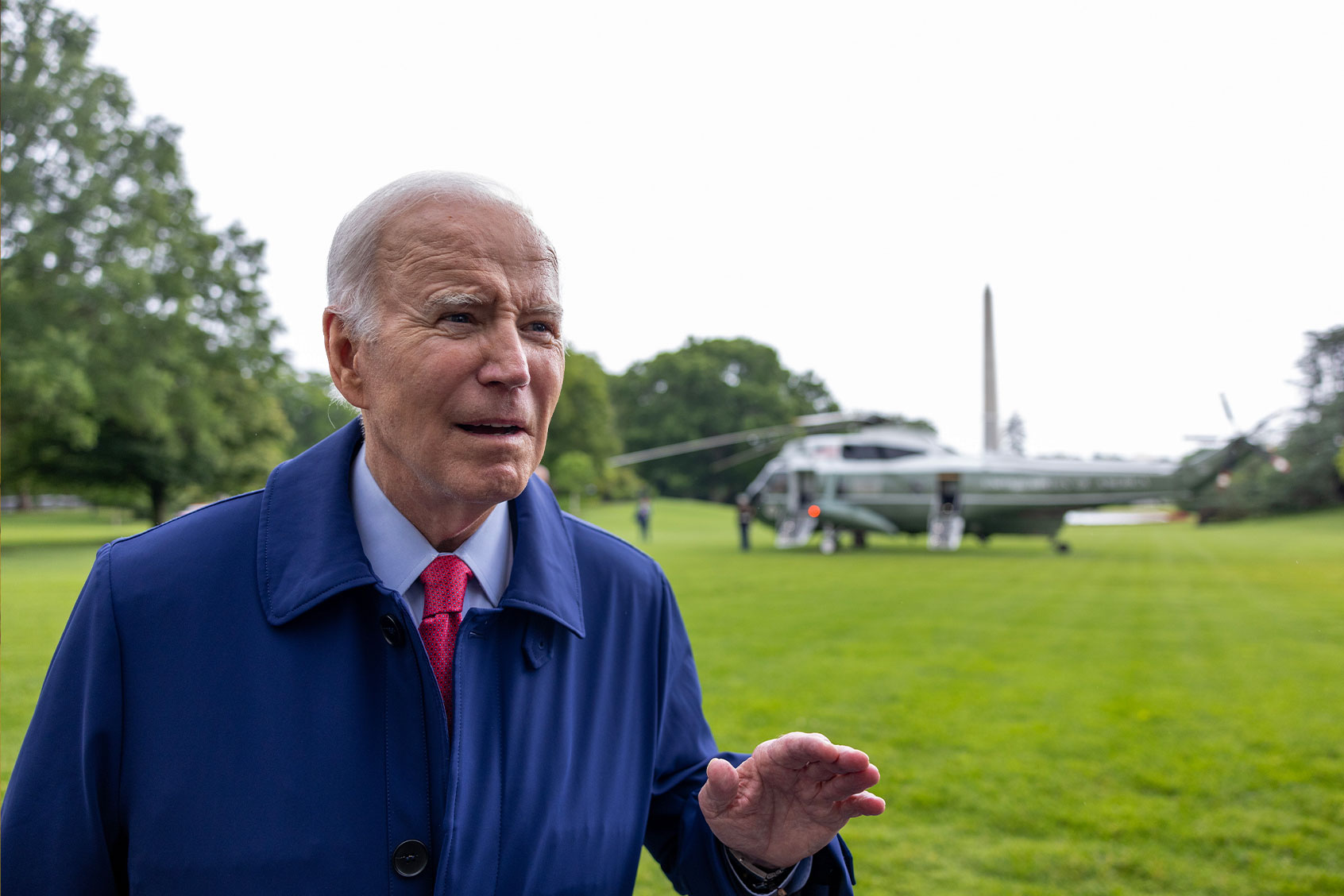Joe Biden became the oldest president in American history on the day he was inaugurated in 2021, two weeks after a mob incited by his immediate predecessor (at the time the second-oldest president in history) had stormed the U.S. Capitol. Even from this brief historical distance, it’s difficult to recapture the total insanity of that moment, which many reasonably normal people (to say nothing of people outside that category) watched in a state of high anxiety: Would Donald Trump actually surrender the presidency and leave Washington, or were we about to see another unexpected and dreadful turn of the screw — a violent assault on the inauguration, or perhaps even an attempt to make the “Storm” forecast by the QAnon cult’s prophets a reality?
Those two facts — Biden’s advanced age and the bizarre circumstances of his ascension to the White House, both of which had no historical precedent — have defined his presidency since its moment of conception, and in all likelihood will do so through its demise, whenever that comes. Speculation that Biden would be a one-term president, supposedly buttressed by unnamed sources in his inner circle, began well before he was elected and has recurred with at least as much regularity as the seasonal arrival of migratory birds (which is no longer a sure thing on our burning planet). At first, this vague thesis held that Biden was a “transitional president,” an avuncular human placeholder who would allow America to turn down the heat on the political boiler in our collective sub-cellar and get back to some semblance of normalcy after the Trump years. Oh, and also: He was way too old.
That never made a whole lot of sense, but the yearning to return to “regular-order politics” was strong, both among the media caste and the Biden-voting plurality of the general population, and in deeply strange times plausibility was not a principal concern. Historians can point to a few examples of incumbent presidents who declined to run for re-election, I suppose, but in virtually every instance that decision was forced on them by external circumstances. (The only such occasion under the modern two-party system was in 1968, when Lyndon Johnson dropped out of the Democratic race after an unexpectedly narrow win in the New Hampshire primary.) As Jamelle Bouie observes in a New York Times column this week, second terms are when presidents define their legacies, for better or for worse, and it was nonsensical to believe that a professional politician who has spent six decades trying to reach the White House would surrender it voluntarily, and forever be remembered as a historical footnote or parenthesis.
Bouie didn’t name names, but he was clearly calling out both his own newspaper and the Washington Post, which have subjected us in recent days to front-page stories about mounting Democratic “anxiety” (or “bed-wetting,” as one party apparatchik deemed it) over Biden’s age and perceived cognitive abilities and, most important of all, about polls suggesting that a large majority of Americans don’t want him to run again and that he and Trump are roughly even in voter support. Bouie was gracious enough not to mention either his Times opinion-page colleague Michelle Goldberg, who published an early-adopter “Biden too old” column two years ago, or David Ignatius of the Post, who filed his own version just last week, but it’s not like there’s any shortage of examples.
We need your help to stay independent
For the most part, these articles and opinion-y thumbsuckers amount to thousands of words’ worth of shrug emoji: No one is super-excited about enduring a ponderous reboot of the Trump-Biden show, which we didn’t enjoy all that much the first time around, but nothing can be done about it. The prospect of a return to normalcy at some unspecified future time is trotted out from time to time, with roughly the same credibility as 1970s Soviet claims that a truly classless communist society lay just beyond the horizon. Some commentators cling to far-fetched hypothetical scenarios in which Trump goes to prison, one or another of the leading contenders has a debilitating health crisis and we are hurtled forward, time machine-style, into a next-gen future with Nikki Haley and Gavin Newsom (or whoever else you like for those roles) as the figureheads of their respective parties.
Biden’s age is clearly a fact and a political factor. (Trump is only three years younger, but largely gets to skate on this question.) But the salient issues here are, or ought to be, what Biden has done as president and how the public perceives that. There may yet be time for Biden to lean into his experience, to energize discussion about our changing perceptions of aging and older people, and to focus attention on his record, which is undeniably mixed but more substantial than almost anyone expected. But he and the Democratic Party have ensnared themselves in a trap of their own devising, by resolutely defining themselves in negative terms. Biden won in 2020 because he wasn’t Trump. Democrats keep winning elections — or almost winning them, or at least not losing them all that badly — because they’re not Republicans. The party hasn’t had anything resembling a positive, unifying identity, still less a political vision, since the Reagan era. Its standard-bearer is 80 years old. It’s not illogical for the public to see those facts as connected.
Read more
about Joe Biden and the 2024 campaign

